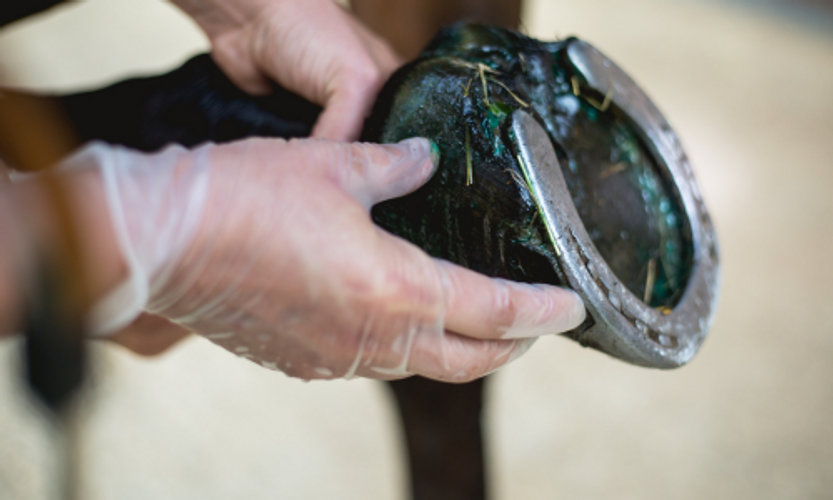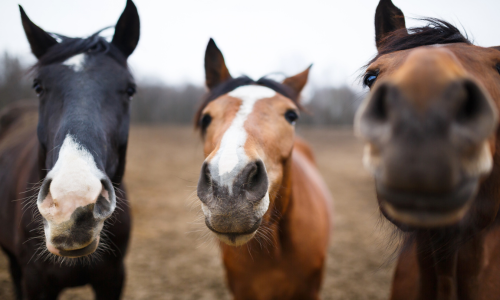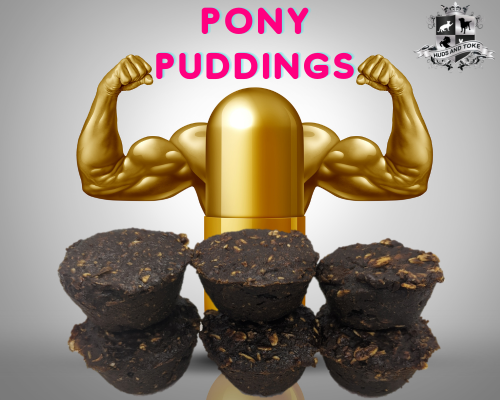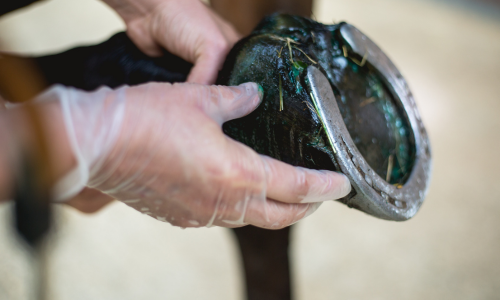Hoof Health and the diet of a Horse.
Posted by Russell Gibbons on 22nd Feb 2024
The Hoof Dilemma: How Poor Diet Can Take a Toll on Your Horse's Hooves
As horse enthusiasts, we pour our hearts into the well-being of our four-legged companions.
We meticulously plan their diets, grooming routines, and exercise schedules to ensure they lead happy, healthy lives.
However, one aspect that often slips under the hayrack is the significant impact of diet on the health of our horse's hooves. In this article, we're going to delve into the nitty-gritty of how a poor diet can wreak havoc on those precious hooves.
On the other hand, healthy hooves mean happy horses!!!
The Hoof Connection
You've probably heard the saying, "No hoof, no horse," and it couldn't be more accurate.
Hooves are the foundation of a horse's entire skeletal structure, providing support, shock absorption, and traction.
Think of them as the equine equivalent of a well-constructed pair of sneakers – they need care and attention to stay in tip-top shape.
Of course, there are numerous ways to care for hooves such as physical hoof care with a farrier, ensuring they are not standing in too much moisture, ensuring the surface isn't too hard, diet, gut health, type of exercise, and the list goes on.....
However, today we will focus primarily on how important the diet is on the health of our horses hooves.
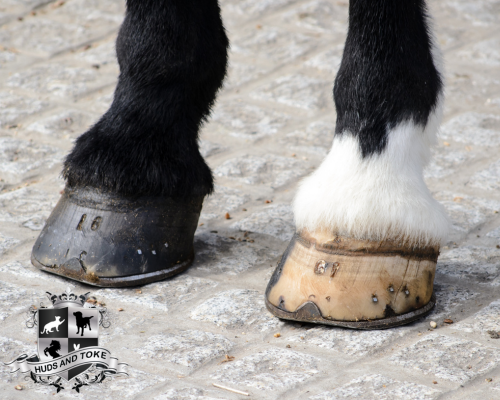
What Happens with a Poor Diet?
1. Insufficient Nutrients
Just like us, horses need a balanced diet to thrive. Insufficient nutrients, such as essential vitamins and minerals like biotin and zinc, can lead to weakened hooves. Biotin, in particular, plays a crucial role in promoting hoof growth and maintaining overall hoof integrity. A deficiency in these nutrients can result in slow hoof growth, leading to brittle and easily cracked hooves.
If you feel that your horse is eating a good diet, yet you notice issues with their hooves, you may need to consider giving supplements.
In many cases Horse Treats can help with giving supplements especially if they are tablet based.
Pony Puddings have been designed specifically to help with this. They are soft and juicy and delicious which allows you to be sneaky and hide those supplements inside the Pony Pudding.
2. Lack of Hydration
Proper hydration is vital for every aspect of your horse's health, including their hooves. A dehydrated horse may experience reduced blood flow to the hooves, impacting the quality of the hoof horn. Dry, brittle hooves are more prone to cracks and chips, making it uncomfortable for your horse and potentially leading to lameness issues.
Make sure there is plenty of water available at all times and ensure you horse is actually drinking.
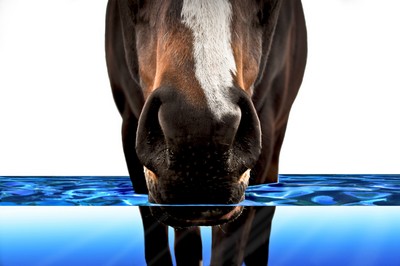
3. Imbalanced Diet
A diet lacking in the right balance of nutrients can throw the entire equine system out of whack. An imbalanced diet can lead to problems such as laminitis, a painful inflammation of the tissues within the hoof. This condition not only affects the hooves but can have serious implications for the overall soundness and well-being of your horse.
One major imbalance is too much sugar in the diet.
Sugar in the diet turns on an abnormal endocrine event that weakens dermal connections, which leads to either flaring or pulling the laminae apart, which can also lead to laminitis.
Further to this, if the horse isn’t doing enough work, or exercise, commensurate to the diet, it can put on weight, and this can lead to hoof issues as well.
Of course, one needs to keep training and interacting with their pony as well, so if you are giving them Horse Training Treats, be sure to use low sugar, or sugar free Horse Treats like the ones made by Huds and Toke.
Therefore, the diet needs to be in line with the exercise of the horse to keep their food in-take in balance.
Once you have your diet under control, you need patience. This is because, when it comes to hoof health, its results take a long time to see!
Remember, the hoof wall only grows at just over half a centimetre per month....
4. Poor Gut Health
If your horse has been on medication, or a diet which doesn't encourage a good microbiome environment within the horses gut, there is a high likely hood of the hooves becoming negatively affected.
The connection between gut health and hoof health is primarily related to the absorption of nutrients and the maintenance of a balanced microbial population in the digestive system.
Hence one needs to ensure that they are eating a diet which will encourage this probiotic health.

The Subtle Signs to Watch For:
1. Keep a keen eye out for signs that your horse's hooves might be suffering.
Cracks, chips, and an overall dull appearance can indicate poor hoof health. Regularly inspect the hooves for any abnormalities.
2. Monitor your horse's movement and behaviour.
If they seem reluctant to walk on hard surfaces or are consistently tender-footed, it could be a sign that their hooves need attention.
- Remember, if your horse is in pain, you may need to administer pain medications once you identify if it is a hoof issue. Horse treats can help with this.
3. Work closely with your veterinarian and farrier.
Develop a diet plan tailored to your horse's specific needs.
Regular consultations and adjustments to the diet can make a significant difference in hoof health.
Regular inspections and physical maintenance of your horses hooves will help identify, prevent and treat issues before they become serious.
In conclusion, a poor diet isn't just about a pudgy pony; it can have a direct impact on the very foundation of your horse's well-being – their hooves.
By paying attention to their diet, ensuring proper hydration, and catching potential issues early, you'll be taking significant strides towards keeping your equine companion sound and happy.
Hoof health is super important to their overall health….. checking your ponies hooves everyday could help spot issues before they become serious….
After all, a healthy horse is a happy horse, and that starts from the ground up – literally!

